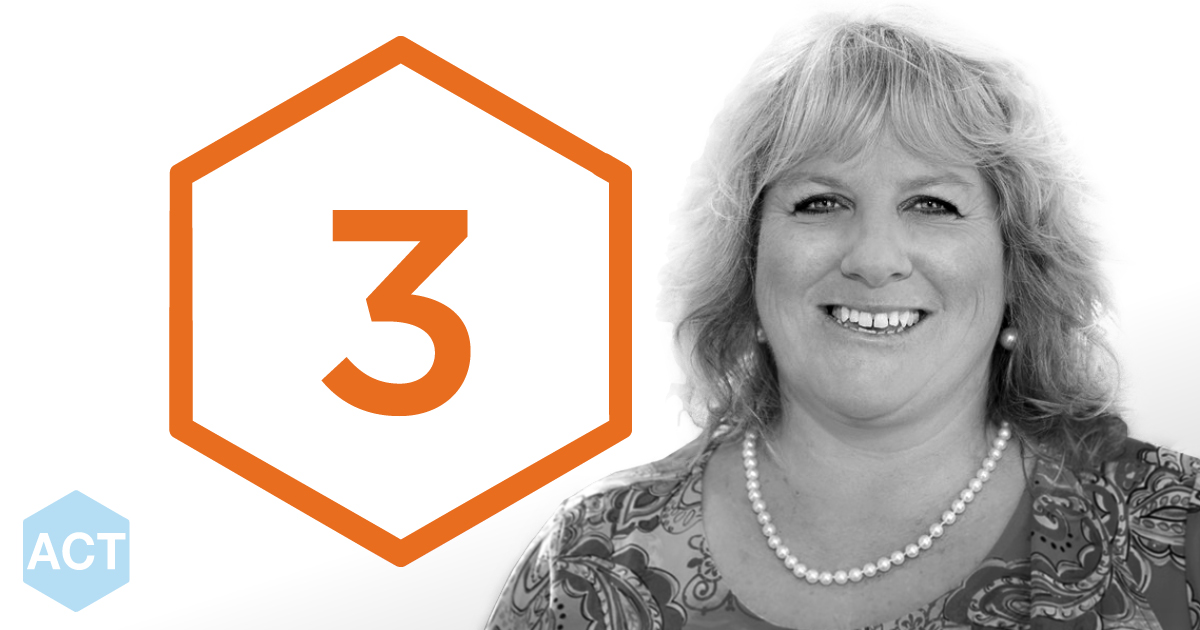ACT 3: Mastering ACT – Philadelphia
Bridging the Gap between Conceptual Understanding and Practical Application
About This Workshop
Program
Saturday, September 28
8:00 am to 8:30 am
- Registration (Not available for CE)
8:30 am to 10:15 am
- Welcoming and Orientation
- What is the Flex in Hexaflex: Moving Away from ACT as a Technique and Toward Mastery
10:15 am to 10:30 am
- Morning Break (Not available for CE)
10:30 am to 12:30 pm
- ACT Processes: Control and Creative Hopelessness as a Process
12:30 pm to 2:00 pm
- Lunch Break (Not available for CE)
2:00 pm to 3:15 pm
- Mastering ACT: Overarching Process, Interpersonal and Intrapersonal Process
3:15 pm to 3:30 pm
- Afternoon Break (Not available for CE)
3:30 pm to 5:00 pm
- Mastering ACT: Fostering Flexibility
- Modeling and Skills Practice
- Q & A
Sunday, September 29
8:00 am to 8:30 am
- Check-in (Not available for CE)
8:30 am to 10:15 am
- ACT 6 Processes as Process: Modeling and Practice
10:15am to 10:30am
- Morning Break (Not available for CE)
10:30 am to 12:30pm
- Mastering the Fluid Implementation of ACT Processes: Modeling and Skills Practice
12:30 pm to 2:00 pm
- Lunch Break (Not available for CE)
2:00 pm to 3:15 pm
- Therapeutic Stance in Mastering ACT: Modeling and Skills Practice
3:15 pm to 3:30 pm
- Afternoon Break (Not available for CE)
3:30 pm to 5:00 pm
- Therapeutic Stance in Mastering ACT
- Modeling and Skills Practice
- Final Q & A
Learning Objectives
Participants will be able to:
- Describe what is meant by therapeutic presence from an ACT perspective.
- Explain what is meant by ACT processes in the therapeutic relationship.
- Explain what is meant by ACT processes from the perspective of personal internal experience and how it is relevant to therapy.
- Explain what is meant by ACT processes and their flexible use with respect to the six core components of ACT.
- Describe barriers to fluid implementation of ACT and how to work through these barriers in an ACT consistent fashion.
- List the six pathological processes and aspects of how they function in the client’s life as well as recognizing how to consider which ACT process applies given the pathological process.
- Describe how core ACT processes and aspects of their function should be addressed and explored in session.
- Describe how the use of ACT interventions reveal the flow and non-toxic nature of private experience and how this can promote therapeutic change.
- Describe the role of personal values in guiding the work done in ACT therapy and how to apply it across sessions.
- Explain how ACT metaphors and experiential exercises can be tailored to fit the client’s experience and language practices including the social and cultural contexts.
- Explain the importance of undefended choice as held by the ACT model.
- Describe how ACT techniques are broadly useful for intervening with multi-problem patients dealing with a number of life issues.
- List the benefits of mindfulness as a practice as well as an ongoing process during session, including how it can be used to cultivate compassion.
Continuing Education
Please review complete CE and conflict-of-interest disclosure information prior to registering. This course is jointly sponsored by Praxis CET and Institute for Better Health (IBH) and is approved for 13 CE Hours by the following:
- APA – Psychologists
- BACB – Behavior Analysts
- ASWB – National Social Workers
- NBCC – National Counselors
- NY State – Counselors and Social Workers
- Other State Level Counselors, MFTs, and Social Workers
- ACCME – Physicians
- ANCC – Nurses
- WESPSB- Educators
Prerequisites
Audience
Recommended Reading
Luoma, J., Hayes, S. C., & Walser, R. D. (2017). Learning ACT 2nd Ed. Oakland, CA: New Harbinger Publications.
References
Walser, R. D. (2013). Love and the human condition. In T.B. Kashdan & J. Ciarrochi (Eds.) Mindfulness, acceptance, and positive psychology: The seven foundations of well-being. Oakland, CA: New Harbinger Publications.
Walser, R. D. & Westrup, D. (2009). The Mindful Couple. Oakland, CA: New Harbinger Publications.
Luoma, J., Hayes, S. C., & Walser, R. D. (2007). Learning Acceptance and Commitment Therapy: A Skills Training Manual for Therapists. Oakland, CA: New Harbinger Publications.
Refund and Cancellation Policy
We understand, sometimes things come up!
Praxis will offer a full refund to registrants of both live and live-online trainings who cancel their registration up to 14 days before the course or workshop start date, minus an administrative processing fee of $30 for a 2-day workshop or online course, and a $50 fee for a 4-day workshop. If cancelled within 14 days, no refund will be issued, however, a credit for the same amount will be applied toward another learning product, which expires within 1 year. Please email us at events@praxiscet.zendesk.com to cancel a registration.

Available Discounts
- Groups of 3 or more professionals receive 20% off at checkout
- Register before August 17 for a $50 discount.
- Student registrations are not eligible for ANY discounts